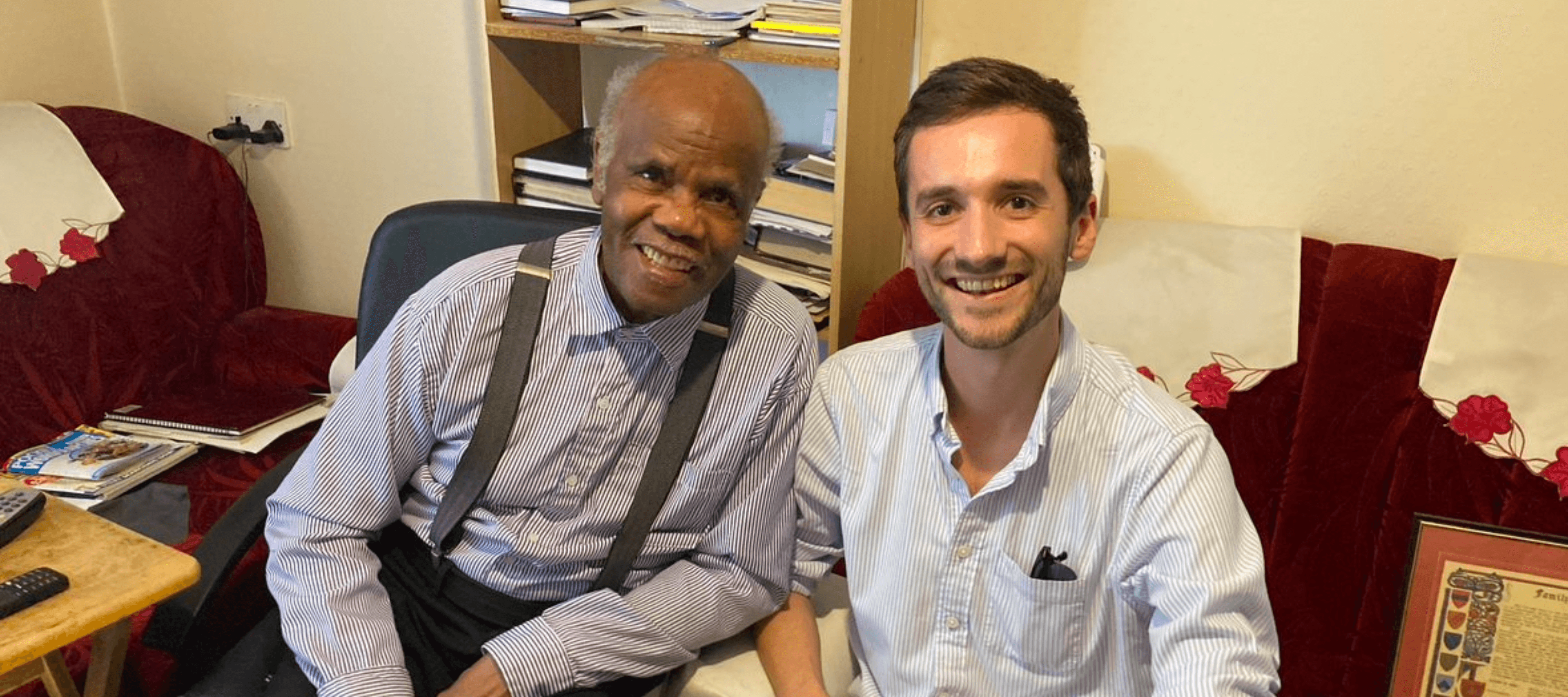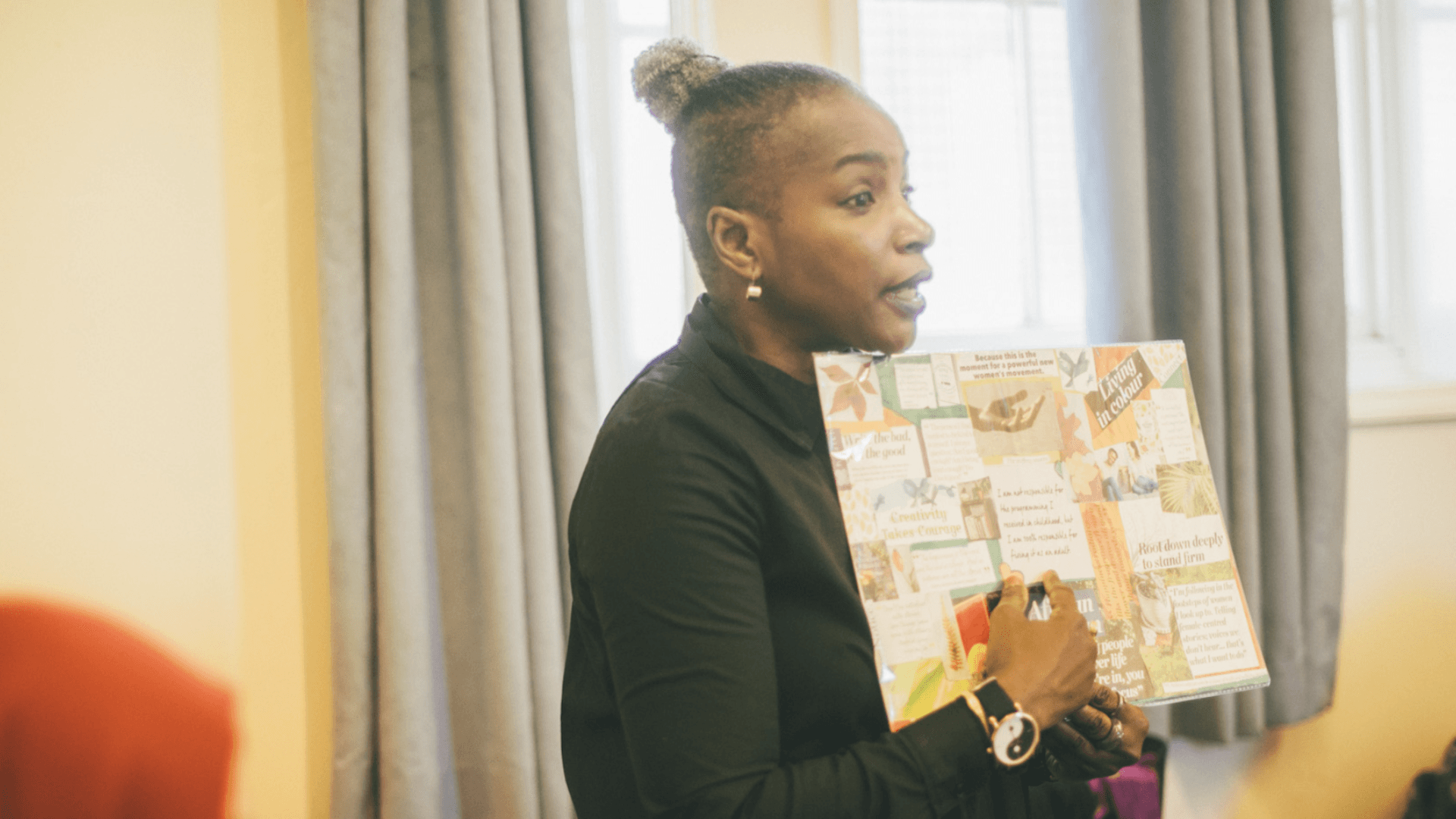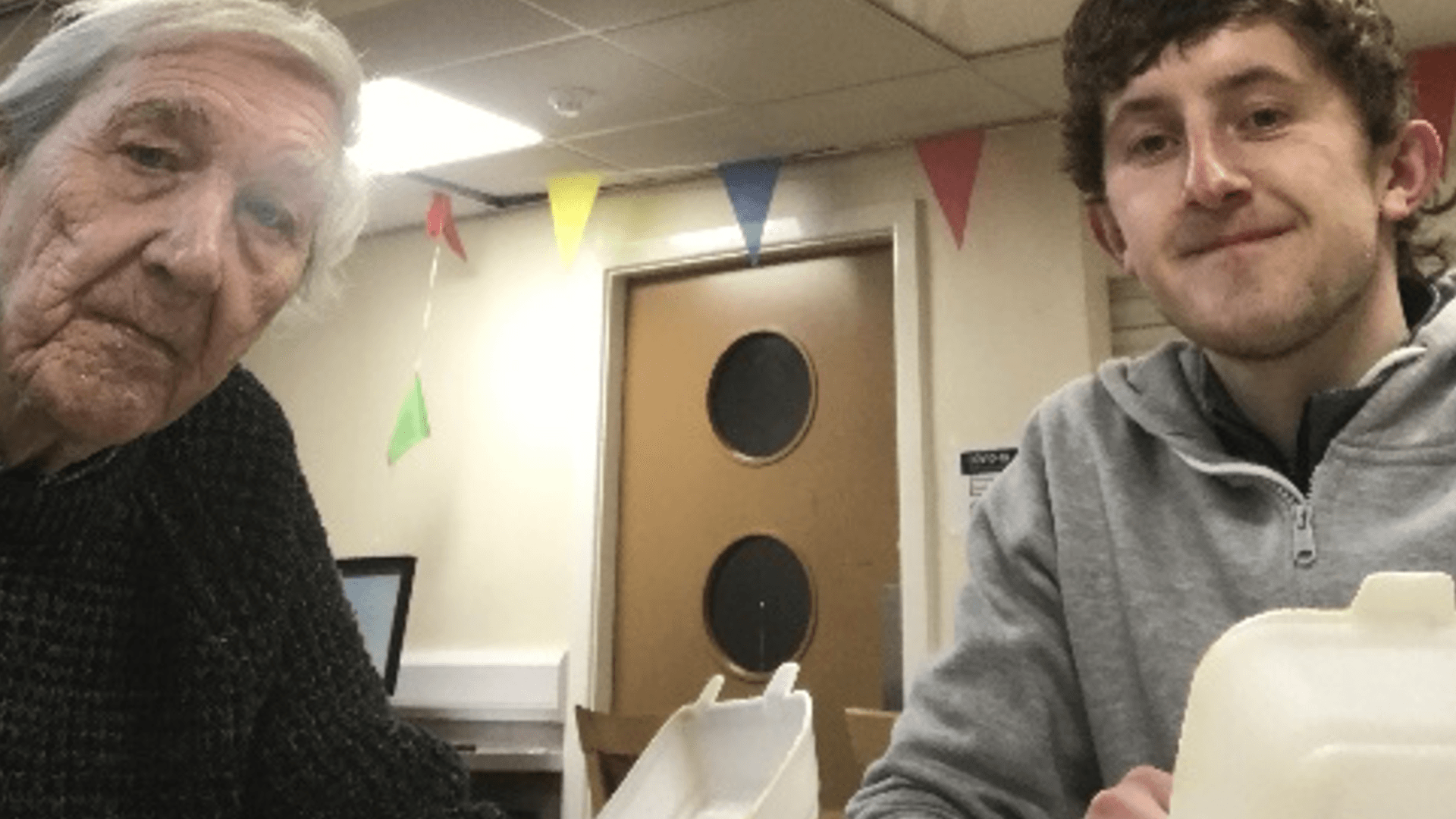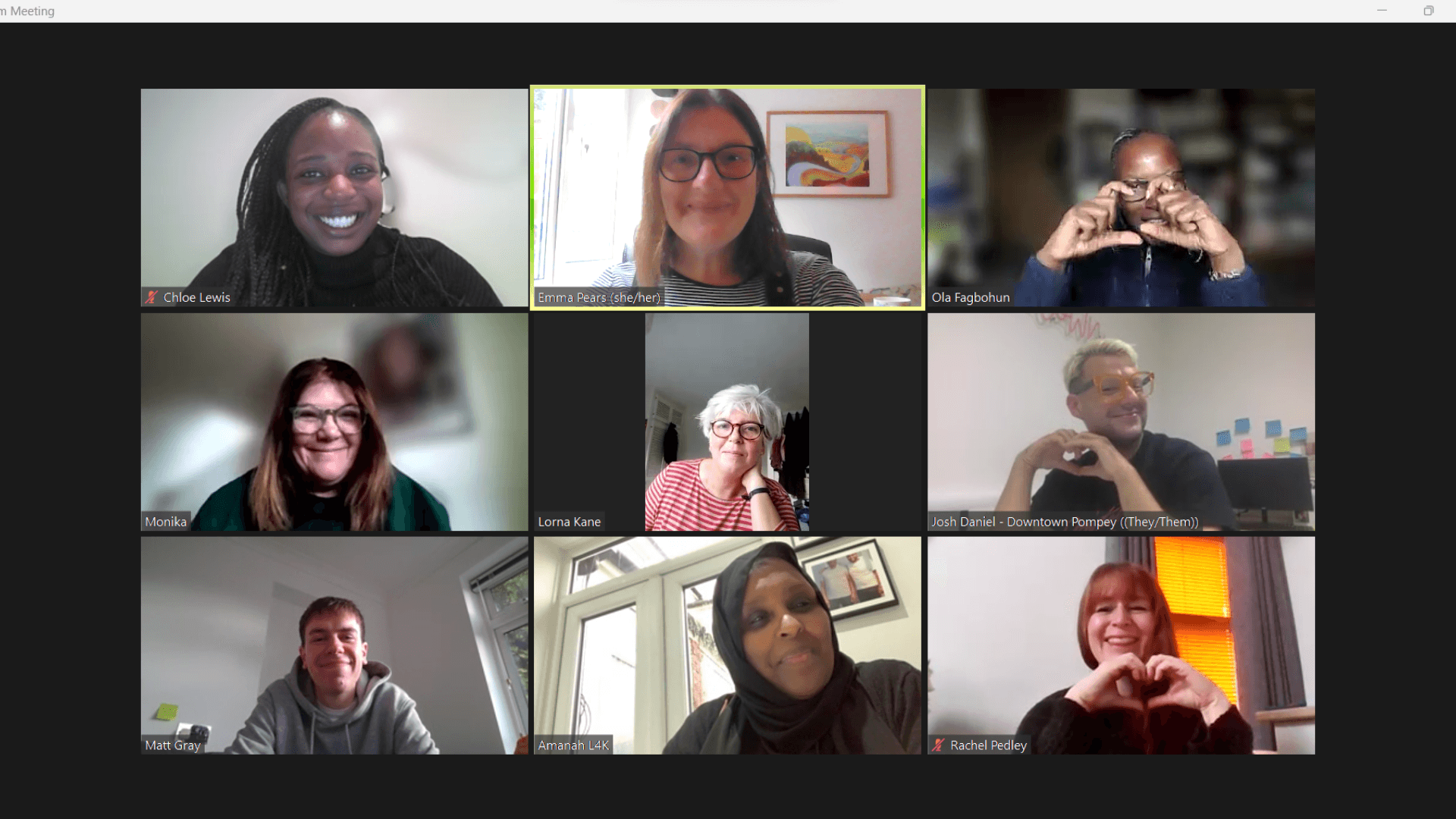
'I've expanded my network of friends' – how we're re-engaging young people after the pandemic
Posted by The Cares Family on 6th March 2023
Please note: this post is 33 months old and The Cares Family is no longer operational. This post is shared for information only
Over nine years between our founding in 2011 and the onset of the pandemic in 2020, The Cares Family mobilised well over 10,000 young people to be part of our intergenerational communities. During that time, those younger people experienced the benefits – shared with older people – of improved wellbeing, a deeper sense of belonging within the community, increased understanding across generations and a greater connection to self. In an age of loneliness, dislocation and division, we heard directly from young people, as well as older people, how these benefits had a disproportionately positive impact on their lives. That has always been important to us, because our model is about bringing equal status and mutual benefit to younger and older people alike – to be not a 'service' but a community.
Yet from 2020, as we adapted our programmes to meet the crisis of the pandemic, and in some ways prioritised older neighbours in that moment, many of whom were shielding and especially vulnerable to the virus – and even as we worked with more people than ever in 2020 (6,787), 2021 (4,705) and 2022 (4,548) – the number and proportion of younger people participating in our communities declined. Our activities were still thriving and deeply valuable for both age groups, but the balance of participation across the generations had tipped towards older people.
This was not a challenge unique to The Cares Family. Indeed, participation in local community through formal volunteering decreased by 19% in 2020 and 2021 – and the fall was bigger amongst 16-34-year-olds than people over 35 (though there was a small increase in informal volunteering in general). Strikingly, roughly one in four people aged 16-34 stopped formal volunteering between 2019 and 2021. While we don't consider being part of The Cares Family activities 'volunteering', and it's certainly not 'formal', this was nevertheless a trend that we were determined to address as we entered 2022.
So we were grateful for the opportunity to partner with Innox Foundation, a charity whose mission is to improve the mental health of young adults and in particular to reduce loneliness and isolation amongst people aged 18 to 25. This work was important to us for a number of reasons in addition to the centrality of our intergenerational approach:
- Firstly, this age group are shown to be the loneliest in society, and loneliness is shown to contribute to other mental health issues affecting young people, including depression and anxiety. Indeed, 40% of young people aged 16 to 24 say they feel lonely often or very often.
- Second, evidence from Onward shows that while Generation Z is the most socially conscious generational cohort in recent history, it is also the least socially engaged. There is a huge opportunity for community organisations to mobilise a demographic of participants who may be willing to participate, but who are currently latent due to a number of pressures on their lives.
- Third, evidence from Onward also shows that 'rising loneliness among young people is driving a generational slide away from democracy and social norms and towards atomisation and authoritarianism.' This is directly related to our mission to reduce dislocation and division as well as loneliness itself.
- Fourth, these experiences are still playing out in the economy, organisations and cultures across the world. As employers adapt to more remote working, we wanted to understand how they – and we – can help their employees to stay connected, healthy and resilient in the medium and longer term.
- Finally, if we can shift behaviours and demonstrate the value of community and connection to this younger group at a time of dramatic transformation, and when new ways of working that will define the next generation are emerging, we may be able to shift the culture of disconnection over the course of the next fifty years.
Our goal in our 2022 partnership with the Innox Foundation was to mobilise 1,000 young people to share time and new experiences with their older neighbours by targeting our storytelling at inactive younger members of our community, new corporate partners and through refreshed social media. By the end of the year, we'd engaged 1,552 young people in 864 intergenerational social clubs and 400 one-to-one friendships, including through 99 inductions for a total of 682 young people who joined our communities for the first time in 2022.
From a survey of some of those young people, we learned that:
- Nearly all young people who are part of The Cares Family join because they 'want to meet new people' and 'want to feel part of their community'. Three quarters 'want to make a positive difference' and just over half 'want to improve their wellbeing'.
- Most young people most enjoyed 'meeting people from a different generation', while three-quarters most enjoyed 'meeting people from different backgrounds' and 'learning more about my community.'
- Participation benefited younger people in various ways: almost all young people felt 'more connected to people from a different generation', three-quarters said they felt they were 'making a positive difference' and almost two-thirds said they felt improved wellbeing themselves.
- Of younger people who signed up but did not become active in 2022, most said that the only barrier to their active participation was not being able to join an induction (we host these once a month).
The general benefits for young people of being part of our programmes were articulated in feedback obtained during focus groups:
- 'I wanted to do something where I live – to meet other people, to feel part of something.'
- 'Liverpool Cares makes me feel part of the wider community as a student. I appreciate the value in talking to older people even more now, for myself and for them.'
- 'It’s given me an extremely fulfilling sense of being part of a cross-generational community. I’ve made friends, had fun and shared fantastic experiences with wonderful people, young and old.'
- 'I feel so much more connected to my community, and I’ve really expanded my network of friends. Before joining social clubs, I mostly had friends my own age – which is not the case now.'
- 'It has been such a wonderful experience. I’ve only recently moved to the area, and this has been a brilliant way of meeting new people, finding my way around the local area and trying new things. I’m always amazed at the fantastic characters I meet at social clubs, and I feel like I’ve learned so much from my older neighbours.'
- 'I only moved to London three weeks ago, and North London Cares feels like my new family.'
- 'I have done things at social clubs I would never normally do, and I have met lifelong friends. Every single person is amazing. We really are family.'
- 'It has helped me understand the perspectives of people from different generations and see our similarities despite our differences.'
- 'Doing something different brings excitement. You don't need to commit every week. I do it because I want to. It’s not like normal volunteering.'
All of this feedback shows that there may be advantages to promoting more clearly the benefits of participation to young people, and not just the sense that they are 'giving' something. This is something we have always sought to do through our storytelling, but we can be clearer about the mental health benefits to young people and the self-interest in being part of our intergenerational communities.
We also learned about some of the barriers to younger people getting involved and how we can continue to improve communication with younger people:
- 'A lot of the good clubs tend to be during the day. This may stop younger people from [being part of it], if the clubs they want to go to are during work hours.'
- 'Some people may prefer smaller clubs – they may not want to dance and sing at their first club but just chat to a few neighbours.'
- 'We didn't seem to get much help on understanding what to expect after our induction. We were just sent a list of events to sign up to.'
- 'My first club was online, but I probably wouldn’t have gone somewhere by myself for my first in-person club. You don't know who’s there, how many people, you may have never been to a community centre before.'
This feedback shows the importance of continuing to host activities during evenings and weekends, to creating diverse sizes of activities as well as diverse content, and to offering support and clear communication for young people all the way through their experience.
Much of this learning underscores what we had learned through three major evaluations between 2011 and 2019 and how we had already adapted before the pandemic. But through a combination of focus groups, informal feedback and embedded observations, we also learned so much through this partnership that is more contemporary, that we will take forward in the coming years, including:
- Many young people are worried about finances, so while our free activities are a great offer, travel costs pose a problem for both younger neighbours. In 2022 we therefore trialled giving small travel budgets to students and people not in employment. This helped some younger people to get involved but it is not possible to make this a universal offer.
- Lots of young people have moved due to the pandemic and are working from home in an increasingly difficult rental market. In London in particular, lots of younger people now live outside of our target boroughs, which have become prohibitively expensive in recent years. We are trialling opening up to neighbours in the contiguous boroughs of Lewisham, Haringey and Newham and this is showing some early signs of success.
- Engaging younger people takes more time than it used to – perhaps because some are more anxious to throw themselves into community activities than they used to be. This means that lots of time that we invested in early 2022 to recruit young people aged 18-25 is only just starting to deliver results.
- Relationships with universities and students need to be established in September and October, as networks and schedules are defined in those early weeks of the academic year. Again, our activity in that part of 2022 is starting to deliver results – and volunteering forums were particularly successful in driving engagement. However, some Fresher’s Fair stands are prohibitively expensive, even with a charity discount. Partnering with student societies directly had a positive impact, as young people were able to co-design social clubs with older neighbours, encouraging everyone to take a leadership role in their participation and this enabled deeper conversation and learning across the generations. Recruiting international students has strong short-term advantages in connecting people from different backgrounds who want to better understand their neighbours and communities but can create challenges around building the type of longer-term relationships that bring uniquely deep value.
- Many younger people speak to their GP about their loneliness rather than seeking community activities. We have always worked with social prescribers to meet older neighbours and plan to explore meeting young people this way too.
- Social media remains one of the most effective tools in reaching new younger people. However, there has been a shift away from Facebook and Twitter, where The Cares Family has our largest followings, and even from still Instagram images, and towards engagement through Instagram reels which are now amongst our highest engagement content. Because of capacity issues, we have still not tried TikTok, but engagement with Instagram reels (including 10,000 views of one East London Cares post and 4,000 of one Manchester Cares post) suggests we could be effective on that platform. Manchester Cares’ Outreach Coordinator said: ‘Instagram and reaching out to local influencers and businesses with big reach has been the best way to reach this age group. Posting reels helped us jump from 20 sign ups per month to 50 and that includes lots of under 25s. But creating this type of content takes significant time.
Already, we're seeing the results of this experimentation and learning, as we refocus our resources on bringing younger people and older people together in new ways – always learning, always improving. We're grateful to Innox Foundation for giving us the support and space to listen deeply to our communities. In the coming months and years, we'll be applying those lessons as we go deeper into our communities through North London Cares, South London Cares, Manchester Cares, Liverpool Cares and East London Cares – and seek to build on that experience to turn a ripple of connection in local places into a wave all across the UK.


